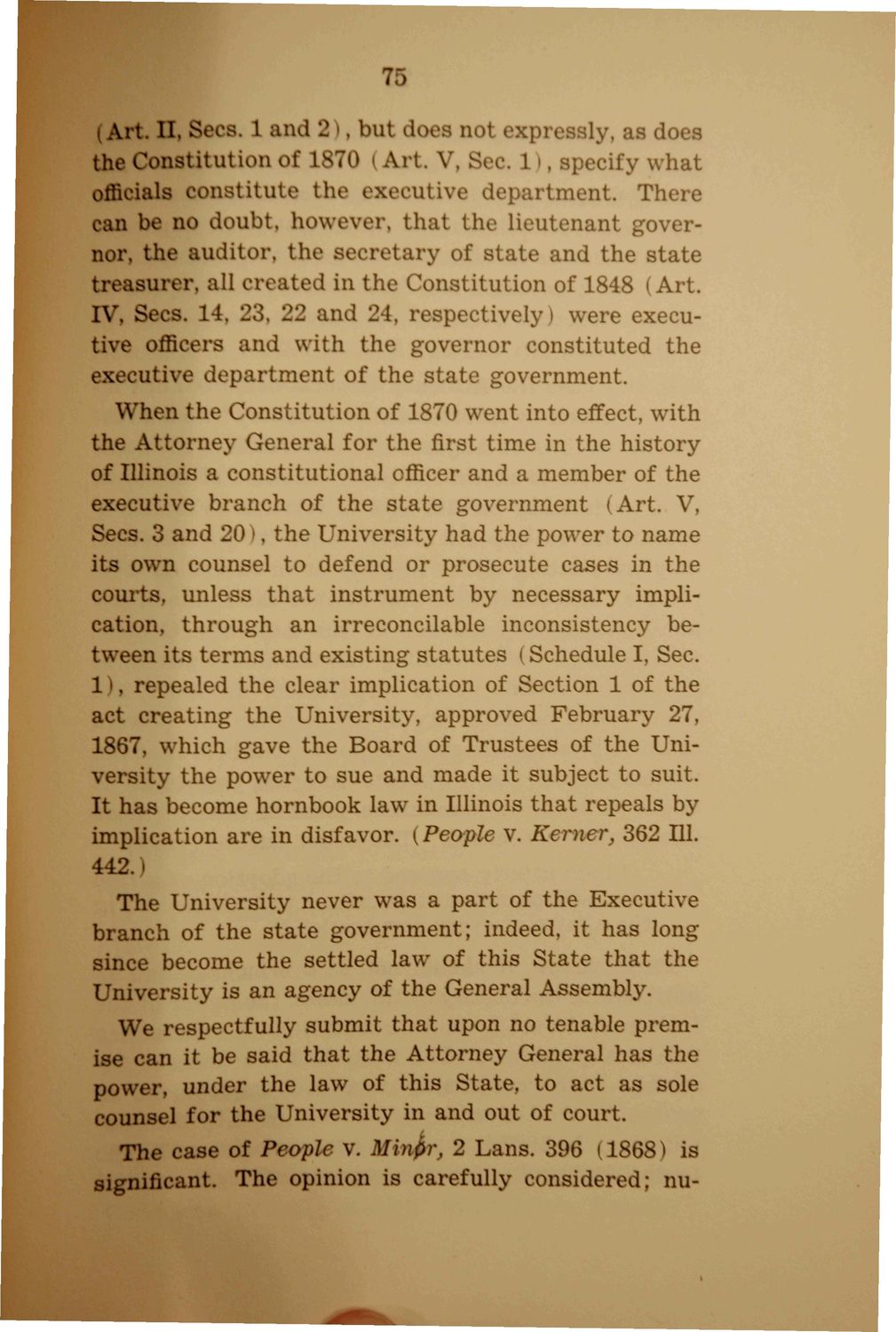| |
| |
Caption: Booklet - UI Charter of Freedom (1942)
This is a reduced-resolution page image for fast online browsing.

EXTRACTED TEXT FROM PAGE:
7 4i II St 1 and 2), but does not express ly, as i he Constitution ol 1870 > Art. V. S \ 11, specify what officials constitute the executive department. There can be no doubt, however, that the lieutenant governor, the auditor, the | eretary of state and the state treasuii-r, all created in the Constitution of 1848 (Art IV, Sees. 14, 23, 22 and 24, respectively) were executive officers and with the governor constituted the executive department of the state government. When the Constitution of 1870 went into effect, with the Attorney General for the first time in the history of Illinois a constitutional officer and a member of the executive branch of the state government (Art. V, Sees. 3 and 20 ), the University had the power to name its own counsel to defend or prosecute cases in the courts, unless that instrument by necessary implication, through an irreconcilable inconsistency between its terms and existing statutes (Schedule I, Sec. 11, repealed the clear implication of Section 1 of the act creating the University, approved February 27, 1867. which gave the Board of Trustees of the University the power to sue and made it subject to suit. It has become hornbook law in Illinois that repeals by implication are in disfavor. (People v. Renter, 362 111. 442.- The University never was a part of the Executive branch of the state government; indeed, it has long since become the settled law of this State that the University is an agency of the General Assembly. We respectfully submit that upon no tenable premise can it be said that the Attorney General has the power, under the law of this State, to act as sole counsel for the University in and out of court. The case of People v. Minor, 2 Lans. 396 (1868) is significant. The opinion is carefully considered; nu-
| |